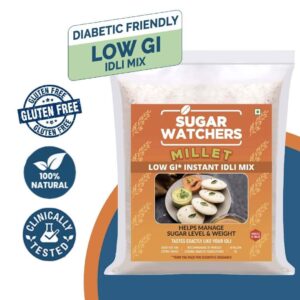Made from grains that do not contain gluten, gluten-free-atta can offer several benefits to individuals who are sensitive to gluten or have celiac disease, an autoimmune disorder that affects the small intestine’s ability to absorb nutrients:
- Reduces digestive issues: For individuals with celiac disease or gluten sensitivity, consuming gluten can cause digestive issues like bloating, gas, diarrhea, and stomach pain. Switching to gluten-free atta can help alleviate these symptoms and improve digestive health.
- Increases nutrient absorption: When individuals with celiac disease or gluten sensitivity consume gluten, their small intestine becomes inflamed, which can lead to malabsorption of nutrients. By using gluten-free atta, the inflammation in the small intestine reduces, allowing for better nutrient absorption.
- Helps in weight management: Gluten-free atta is often lower in calories and carbohydrates than regular atta. So, it may help in weight management, particularly for those who are trying to lose weight.
- Boosts energy levels: Some people with celiac disease or gluten sensitivity may feel sluggish and low in energy due to their bodies’ inability to absorb nutrients efficiently. By switching to gluten-free atta, they may experience increased energy levels.
- Improves skin health: For some individuals, gluten consumption can cause skin issues like rashes, acne, and eczema. By eliminating gluten from their diet, they may experience an improvement in skin health.
It’s important to note that individuals who do not have celiac disease or gluten sensitivity may not necessarily benefit from a gluten-free diet. In fact, a gluten-free diet may lack certain nutrients and fiber that are typically found in foods that contain gluten. Therefore, it is recommended that individuals consult with a healthcare professional before switching to a gluten-free diet.















